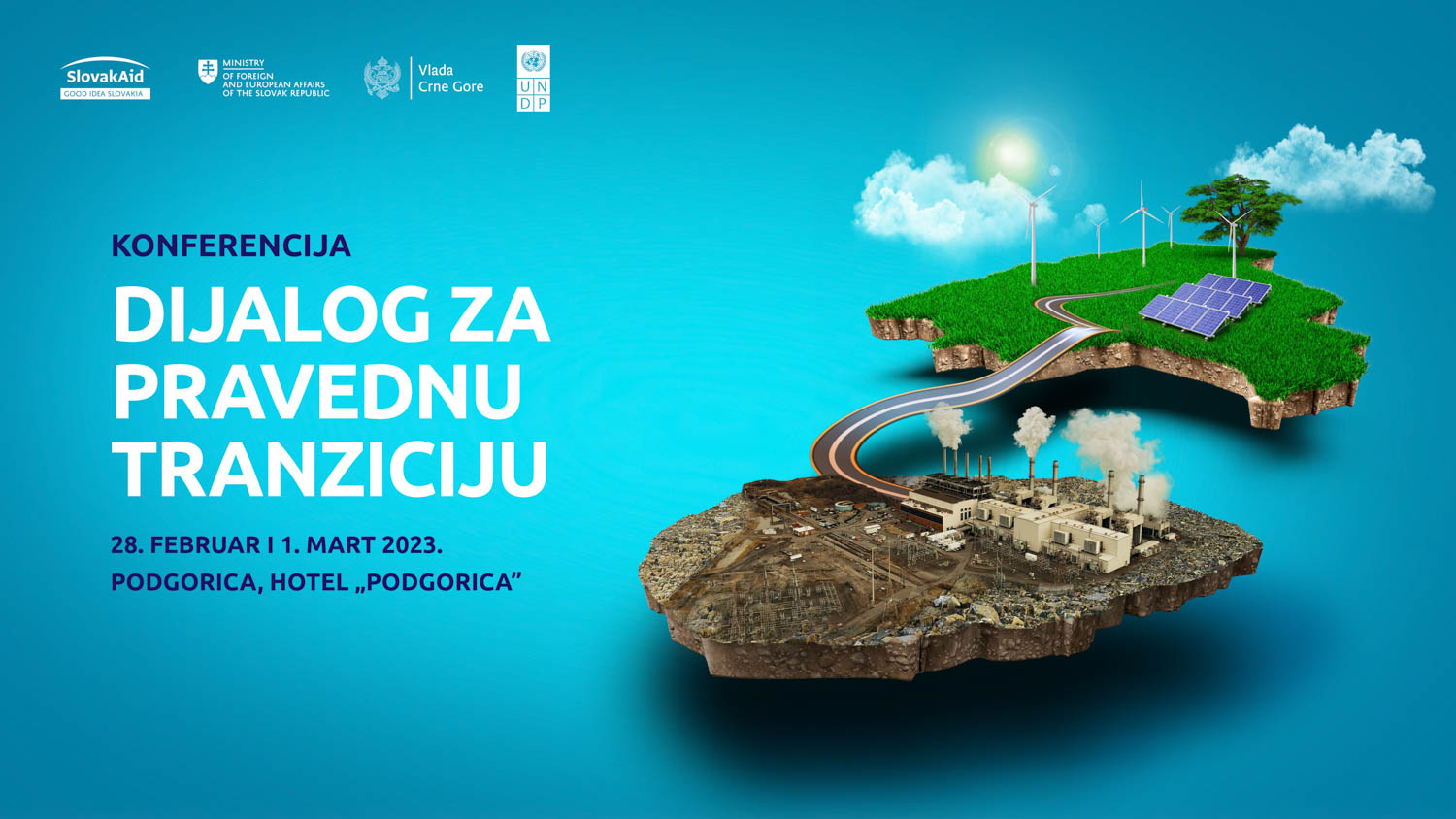RESOURCE MOBILIZATION FACILITY
Just Transition - Pljevlja - Decarbonisation

Official project title: A Just Transition Roadmap for Montenegro – reaching national consensus on coal phase-out pathway
Pljevlja, a town in the north of Montenegro where single coal mine in the country is located has a population of around 30,000. The mine supplies the local coal-fueled power plant that generates about 75 % of all electricity produced in Montenegro. For years, Pljevlja has been the most polluted city in the country. The project supported the intention to close the mine and the power plant with the least possible negative impact on local inhabitants and employment.
Decarbonization is an extremely long-term and multidimensional process. UNDP enters the process mainly by supporting the participatory solution of the socio-economic situation of the workforce. A coal phase-out socio-economic study was carried out, which describes the current situation of employees who are directly or indirectly involved in coal mining and coal-fired power generation. The study also points out the changes that are expected in the medium-term future related to the efforts to decarbonize the region. UNDP ensures the involvement of various stakeholders including the business community, civil society, academia, media, political decision-makers and citizens in the complex process of coal phase-out through using various engagement tools, like surveys, conferences, workshops, etc.
The project resulted in a Just Transition Roadmap for Montenegro. The roadmap specifies the impact of decarbonisation on employment, the changes in supply and demand chains and financial costs of the process. The Government of Montenegro adopted the Roadmap as a baseline for all subsequent steps.
The decarbonization of Pljevlja is also supported by the Slovak Ministry of Finance through other project in cooperation with the UNDP that focuses on involvement of young people in the process of transformation. The Donor’s multidimensional support helps to better position Slovakia in this topic on the ground.
Extended Producer Responsibility Information System
Official project title: EPR information system in Montenegro
The project focused on the collection and processing of waste related data, including data related to the extended producer responsibility (EPR) system in Montenegro. EPR improves the waste management in Montenegro, primarily by setting up recycling processes.
As part of the project, two analyzes were developed: Analysis of the legislation and information system requirements for the EPR and Table of compliance of the regulations of Montenegro with EU in the field of waste management relating to EPR. In cooperation with the Environment Agency, 8 executive regulations were drawn up, which need to be legislatively approved.
Development Of Solar Energy
Official project title: Solar development in Montenegro
The aim of the project was to overcome barriers in the construction of small and medium-size photovoltaic power plants in Montenegro.
The project complemented the national strategy to support the construction of small and medium-sized photovoltaic power plants. It helped develop 25 sample PV projects, as well as a system for automating the process of preparing project documentation. Project activities led to shortening the process of design and permitting of PV power plant construction.
Thanks to a marketing strategy in the framework of the national project SOLAR 3000+ implemented by the ECO FUND of the Republic of Montenegro and later on successful finalization and transition to the second phase called Solar 5000+, the project significantly increased awareness of the benefits of using solar energy for electricity generation and reduction of CO2 production.
Design Of Photovoltaic Power Plants For Four Locations in Montenegro
Official project title: Design of main Project of photovoltaic power plant for four locations in Montenegro
ne of the methods to facilitate economic growth and cut electricity cost is to provide customers (households, small businesses and public institutions) with a wider choice of energy providers, while giving them an opportunity to generate electricity from renewable sources by themselves and supply it to the grid.
Four designs of photovoltaic equipment for small and medium-sized enterprises in the cities of Podgorica, Nikšič, Cetinje and Martiniči emerged within the project. The proposals also defined financial needs. The cities draw from the studies to currently address the funding for the photovoltaic power plants construction.
Public Lighting As A Way To Cut Energy Cost
Official projects titles: (1) Procurement of Design of Solution for Public Lighting Podgorica; (2) Design of Technical Documentation and Tender Dossier for Modernization of Public Lighting System for municipalities of Danilovgrad, Budva, Old Royal Capital Cetinje and Kolasin
Municipalities in Montenegro suffer from a lack of street lighting, along with its indiscriminate monitoring and maintenance. Feasibility studies that include energy passport, technical solution for lighting upgrading (replacement, management and monitoring), cost estimates, envisaged energy savings as reflected in lower cost, potential for CO2 reduction, and guidelines for investment modalities for six municipalities (Podgorica, Budva, Cetinje, Danilovgrad, Kolašin, and Pljevlja) were developed within the project. The studies are the first of the kind in Montenegro.

